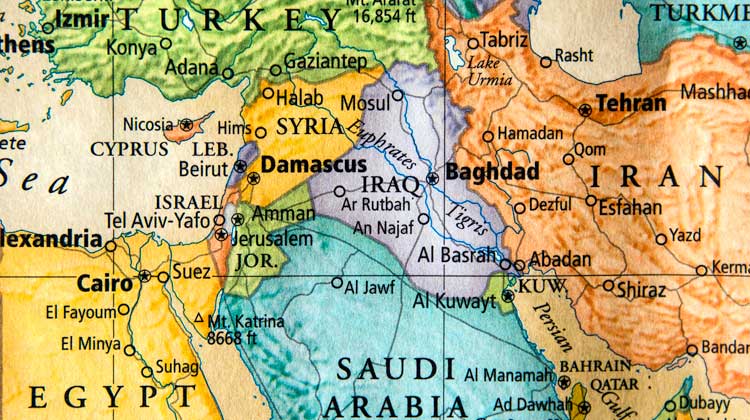
ISIS has commanded the attention of the United States since it burst on the international political scene in 2014. But before the U.S. can take a victory lap about its defeat of ISIS, it needs to figure out what to do next for Iraq.
Throughout the 2016 presidential election, then-candidate Donald Trump vowed to lift the highly restrictive rules of engagement imposed by President Obama against the Islamic State. Trump sought to fully unleash the U.S. military and destroy ISIS.
This goal has been accomplished. A tactical victory has been achieved, but as far as achieving a strategic victory, the U.S. has yet to figure out how to rebuild Iraq.
President Bush’s Mistakes with Iraq
The past two administrations have made strategic miscalculations with regard to Iraq. For example, President George W. Bush invaded Iraq in the belief that Iraqi President Saddam Hussein had developed and possessed weapons of mass destruction.
The removal of Saddam Hussein and his government from power was a tactical victory. But the U.S. blundered when the newly created Coalition Provisional Authority dismissed the Iraqi civil service and disbanded the Iraqi army.
This mistake led to the collapse of the Iraqi state and created a civil war that engulfed the nation. That war allowed al-Qaeda to entrench itself in the country and permitted Iran to expand its influence in Iraq.
After much bloodshed, the United States reversed course in the last two years of Bush’s second term. Additional U.S. troops surged into Iraq and stabilized the country. With the cooperation of Sunni tribes, they formed the basis of the “Sunni Awakening,” which reduced sectarian violence and eventually defeated al-Qaeda.
President Obama Disengages from Iraq
The second strategic miscalculation occurred in 2009, when President Barack Obama took office. Obama failed to build on the success of the power surge and use the support of the Sunni tribes to cajole Iraqi leaders into looking past sectarian hatreds. The focus was on compromise, with Obama disengaging from Iraq.
For instance, the 2010 Iraqi election was a pivotal point. The Iraqiya, a nationalist and nonsectarian political party headed by Ayad Allawi, defeated Nouri al-Maliki’s Dawa Party in a close election.
The Obama administration failed to honor the results of the election, which would have permitted Allawi to form a stable government. Instead, Maliki remained Iraq’s prime minister, contrary to the Iraqi constitution and the strong opposition from Iraqi politicians.